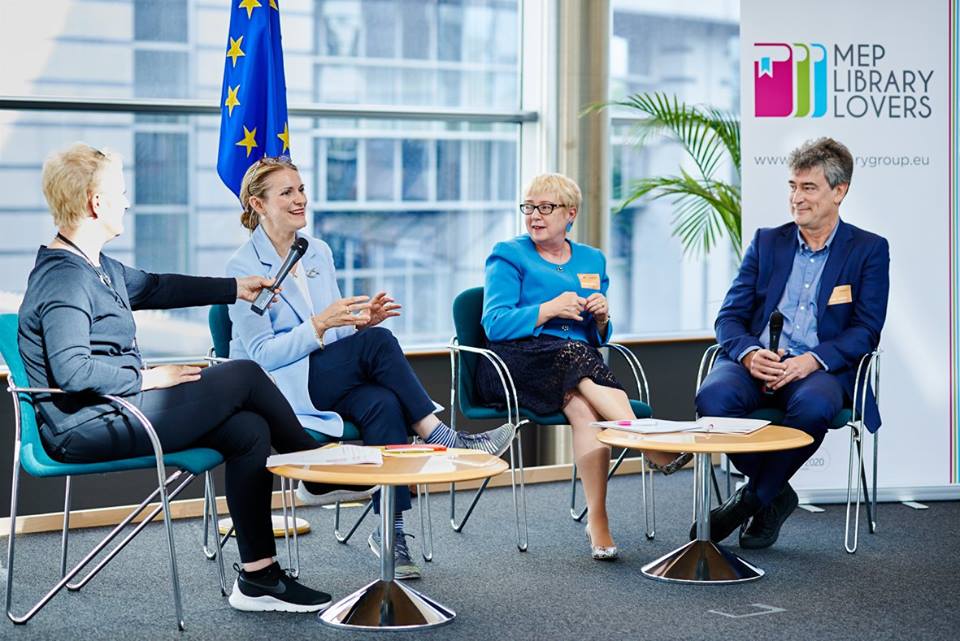As the 2019 European election campaigns come to a close and voters head to the polls, we want to take a moment to reflect on the contributions public libraries can make towards EU priorities.
Social policy has featured on the European agenda, however it has primarily centred around promoting employment, improving living and working conditions, providing social protection, and combatting social exclusion. Social policy should cover more aspects than these ones but widening the scope of EU social policy requires significant investment. We see public libraries as the actors that can push for a more inclusive EU social policy.
Public libraries serve their communities. They are social places, learning spots, and so much more. They are vital hubs for those looking for information and for those looking to develop their skills. Innovation, especially digital innovation, has become crucial in many public libraries. How do we get policy-makers to include libraries in social policy and to recognise libraries as key partners in building a truly inclusive Europe?
Due to the evolving nature of libraries, policy-makers are often unaware of the dramatic changes that have taken place in libraries across Europe. This disconnect between perception and reality is often tied to policy-makers who may not have been in their public libraries in a long time and have not been able to witness how libraries respond to community needs.
This is where our MEP Library Lovers group comes in. This group brings together Members of European Parliament (MEPs) passionate about libraries from across the EU countries and political spectrum. Through our “Libraries Change Lives” tour, we organised library visits for MEPs to experience first-hand the work done by their local public libraries. One of those visits saw Martin Schulz, then President of the European Parliament, see the importance of public libraries as a meeting place for all social groups. One of our MEP Library Lovers, Esther de Lange, visited Utrecht library and saw the work they do with the most difficult social groups. Artis Pabriks, another MEP Library Lover, visited the Valmiera Joint library and discussed the importance of memory and cultural heritage.
Our advocacy work with MEPs strives to update their perceptions of public libraries and incorporate public libraries as social actors the EU can use for wider social policy efforts. Our events, such as Generation Code: Born at the Library, connect innovative libraries and MEPs and reinforce the image of public libraries within European institutions and illustrate the value of integrating public libraries into relevant social policies.
Ultimately, we strive to build a bridge between MEPs and public libraries through our MEP Library Lovers group. In doing so, we hope this encourages public libraries to continue communicating with MEPs so that European policy-makers understand how public libraries are social and economic change actors.
Work with us and get the newly elected MEPs into your libraries. We can help you close the divide between policy and community.
Keep an eye on the website as we re-launch MEP Library Lovers with the newly elected MEPs.

